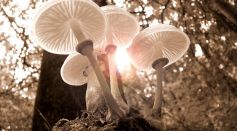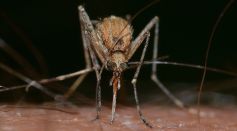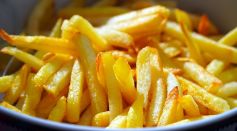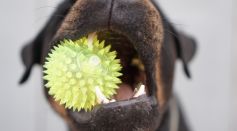CHEMISTRY

Mushrooms Could Solve Space Junk Problem Through Satellites Made of Mycelium Fibers

Kojic Acid Soap Before and After Use Comparison: Benefits and Side Effects of This Skin Brightening Ingredient
Sodium Hyaluronate: How Is It Used, What Are Its Benefits?

Why Mosquito Bites You: Scientists Discovered Chemical Differences on the Skin That Attracts Them
Kazakhstan's 'Sleepy Hollow': Magic or Science? Uncovering the Real Story Behind the Two Villages That Fell Asleep
Biosolids From Sewage Water Could Solve Global Carbon Emissions and Power Shortages
Rare Radioactive Plutonium Isotope Dating Back Millions of Years Discovered 5,000ft Below Pacific Ocean

Perishable Food Can Now for Last Months, Thanks to This New Pasteurization Technique

New Harmless Bacteria Strain Could Fight Dog's Bad Breath, Could Last for Up to Two Hours!

Lithium-Metal Battery Holds More Energy, Could Transform Electric Car Industry

Why Does Pink-Colored Energy Drinks Enhance Athletic Performance Better Than Clear Fluids?
Smelling Changes in DNA Structures Now Possible, Showing Immense Potential for Disease Prevention
Genetically Re-engineered Microorganisms to Convert Waste Into High-Value Chemicals

Acidity of Molecules Measured Using New Technique; Will Help Determine Substance's Chemical Behavior
Most Popular

Tree Communication Explained: How Underground Fungi Networks Connect Entire Forests

Space Tourism Future: How Commercial Space Travel Will Transform Civilian Exploration

What Causes Tornadoes and How They Form: Tornado Science Explained for Extreme Storms

How Space Observation and the Solar Light Spectrum Make the Sun Look Different in Space Than on Earth





